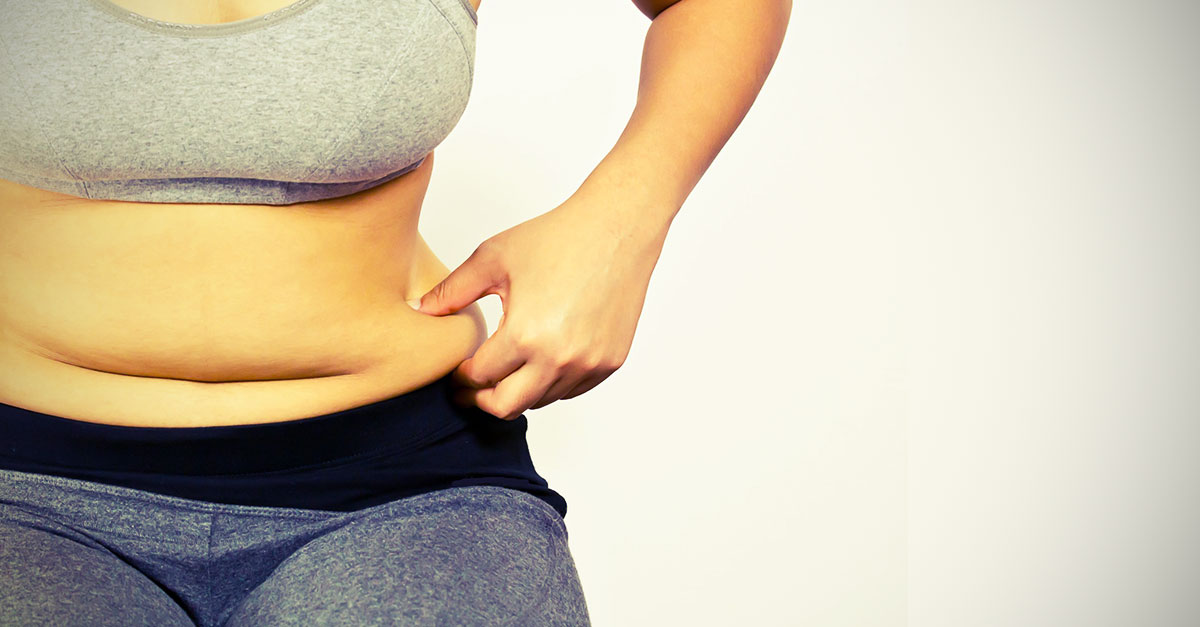Do you always wonder why your friends can eat anything they want without having to worry about putting on weight, and why you gain weight even if you have been eating less than ever? What keeps some people slim irrespective of what and how much they eat? What happened to you?
Why Are You Eating Less but Gaining Weight?

1. You Are Not Eating the Right Food
It means that even though you are eating less, you are eating the wrong foods. Snacking less often or having smaller meals are not going to help if your diet includes calorie-dense foods. Certain foods are considered healthy, but they can also be high in calories. Pecans, for instance, can improve your cardiovascular health, but an ounce of pecans contains 200 calories. Only a small amount of such kind of food can provide you with lots of calories. Therefore you need to eat less and eat smart too.
2. You Are Not Eating Enough
Eating less but gaining weight is a common complain of people who want to lose weight. Actually, eating too little can also affect your weight-loss results. Eating less is not going to help if you are not providing your body with all the nutrients it needs to function properly. In this condition, your body may go into starvation mode and slow down your metabolism. Moreover, you cannot exercise or complete heavy workout sessions if you are not eating enough calories, which is also bad for fat loss.
3. You Are Building Muscle Mass
Do not always panic when you step on the weighing scale and find out that you have put on weight. Sometimes, the increase in weight is not that bad because it could be due to an increase in muscle mass. It means that even though you are gaining weight, you will look slimmer, because muscle is denser and takes much less space than fat. Building muscle mass is actually a good thing because it improves your resting metabolic rate, which means you are going to burn more calories even when you are resting.
4. You Are Under Stress
Even if you are eating less and eating healthy food, you may still end up putting on weight because of stress. When you are under stress, you experience all sorts of hormonal imbalances. For example, cortisol, the stress hormone, increases when you are under a lot of stress, and this increase can lead to accumulation of fat around your abdominal area. What it also means is that even if you have a healthy body weight, you may build belly fat due to stress.
5. You Have Hypothyroidism
If you have been paying attention to your diet and exercise but you are still gaining weight, it could be due to an underlying health condition. A common issue is hypothyroidism or underactive thyroid. The thyroid helps regulate your metabolism, so you gain weight when the thyroid gland is underactive. You should see your doctor if you suspect you have this problem, and they will perform certain tests to confirm if your thyroid gland is the culprit.
6. You Are Not Getting Enough Sleep
Not being able to sleep through the night may result in weight gain. Leptin and ghrelin are two hormones responsible for regulating your hunger levels and they get thrown off when you do not get enough sleep. This results in intense cravings. Your metabolism also slows down due to the lack of sleep, and this again results in weight gain.
7. You Are Insulin Resistant
If you have more than 20 pounds to get rid of but you have failed to lose any despite being very careful with your diet and exercise, you may be insulin resistant or have metabolic syndrome. When you are insulin resistant, your body begins storing the calories as fat. It means that even if you are eating healthy foods that a person with healthy metabolism could eat without an issue, you can still gain weight.
How to Lose Weight Effectively
If you are eating less but gaining weight, this could be due to many different reasons. You need to identify the underlying cause and proceed in a systemic way to lose weight effectively. For instance:
- Eat healthy breakfast: Do not overlook the importance of having a healthy breakfast. This first meal of the day needs to be full of important nutrients. Focus on getting a good amount of fiber and whole grains to keep you from craving for empty calories later in the day.
- Increase protein intake: Adding more protein in your diet helps you lose weight more efficiently. It helps keep you satisfied even when you are eating less food.
- Chew slowly: Take your time when eating your meals. Chew slowly to make your body register the amount you are eating. The more time you take to eat, the less food you will end up eating. It helps you feel fuller and keeps your appetite in control, which in turn will help you lose weight.
- Do more exercises: Diet alone is not going to help, so you have to add exercises to help you lose weight. Making small adjustments to your lifestyle will also work. Take stairs instead of taking the elevator; go window-shopping; walk to the train, bus, or all the way to your office; spend time gardening; or take your dog out to stretch your leg a bit. Exercising for 20 minutes alone can help you burn up to 700 calories.
In addition to all these steps, if you are eating less but gaining weight, you can also try drinking a gallon of water a day to lose weight, or using cinnamon and honey for weight loss.
